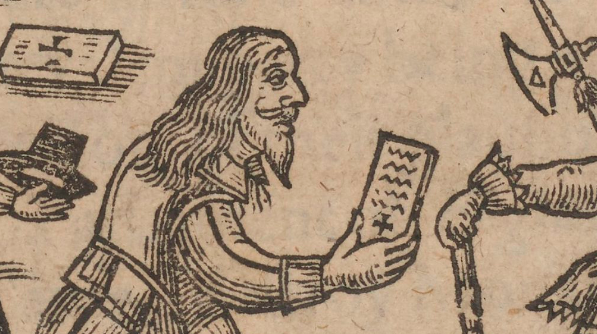By Brodie Waddell
September 2019 saw publication of the first tranche of content from The Power of Petitioning in Seventeenth Century England — a research project to transcribe and publish more than 2000 petitions composed and sent between the late sixteenth and early eighteenth century.
Here Dr Brodie Waddell, the project’s Principal Investigator, explains the nature of early modern petitioning and the use of the IHR’s British History Online to publish this first set of records.
In 1658, while England was beset by constitutional instability and a deeply unpopular national leader, a group of men in the Cheshire village of Bramhall set about creating a petition. However, the target of their ire was not Oliver Cromwell or the Protectorate regime. Instead, their complaint was against two of their neighbours, a smith named Richard Fallowes and an unnamed woman who lived with him.
The thirteen men of Bramhall complained to the local magistrates that Fallowes ran an alehouse that harboured drunkards and turned their village into a place akin to Sodom. ‘Much honoured gentlemen’, they began, ‘it may hereby please you to understand’. The petition went on to bewail ‘the crying noyce of sin’ caused by drunkenness and fornication at the alehouse, and asked the ‘honoured gentlemen’ of the county quarter sessions that Fallowes ‘may be suppressed from selling of ale and beere for the future’.
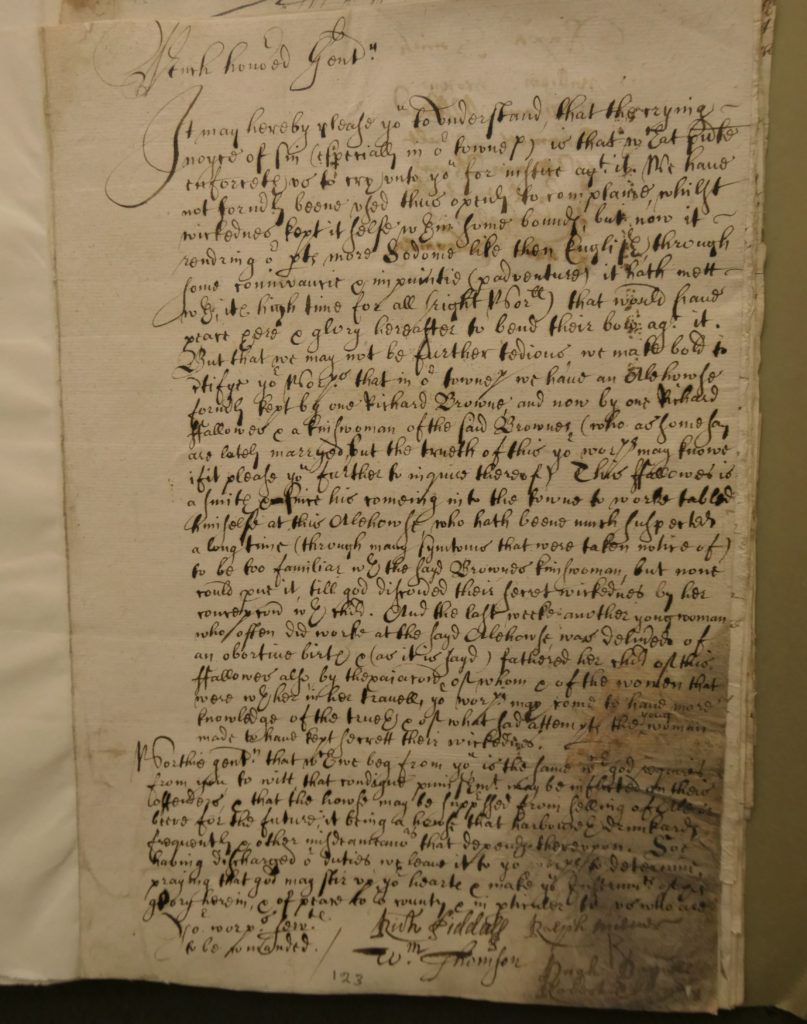
Image courtesy of Cheshire Archives and Local Studies, QJF 85/4/123
This might not be the sort of document most of us associate with the word ‘petition’, but such complaints were widespread in Elizabethan and Stuart England. Now, thanks to the publication of two new volumes on British History Online, anyone can read a transcription of the petition of the men of Bramhall along with over 570 others from Cheshire and Worcestershire between 1570 and 1700.
The hundreds of ‘petitions’ that have just been published were almost all submitted by ordinary people about local or individual grievances. Many came from victims seeking justice against alleged offenders and from prisoners seeking mercy from the courts, including one case involving ‘a heynous slaunder of fealonie and murder’.
The Power of Petitioning
There were also many focused on the poor relief system, both from individual paupers seeking support from their parish and from parish officials trying to avoid such financial obligations. Others included requests for licences to build cottages on common lands or to open an alehouse.
Alongside these one finds numerous petitions about local taxation, child support for unmarried mothers, parish officeholding, and many other miscellaneous concerns. Together, they provide stories of misbehaviour, hardship, resilience and solidarity from the perspective of people whose concerns are currently rarely available in online sources.
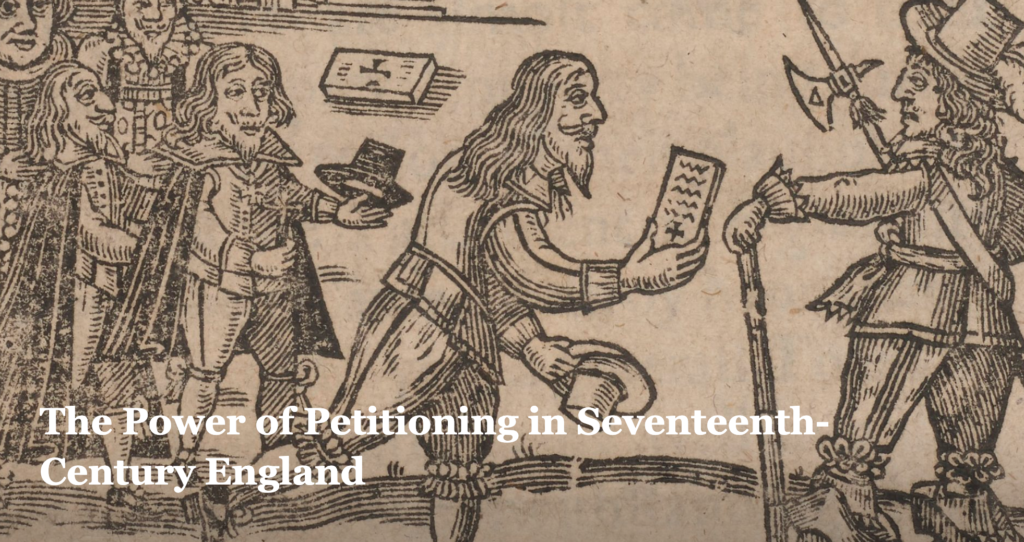
This new resource was produced as part of a project called ‘The Power of Petitioning in Seventeenth-Century England’, funded by the AHRC and the Economic History Society. It begins with these 572 petitions submitted to the quarter sessions of Cheshire and Worcestershire, transcribed from the original manuscripts held by the Cheshire Record Office and the Worcestershire Archives and Archaeology Service. The series will also include a five further volumes of petitions: over 600 submitted to the magistrates of Derbyshire, Staffordshire and Westminster, about 400 to the Crown, and about 750 to the House of Lords. In total, transcriptions of over 2,000 petitions from sixteenth, seventeenth and eighteenth centuries will soon be online.
The petitions on British History Online
British History Online (BHO) is the ideal home for these newly transcribed primary sources. One of the chief aims of our project was to make easily available much of the archival material used during our research. Integrating the transcriptions into this well-known platform will ensure their discoverability and sustainability.
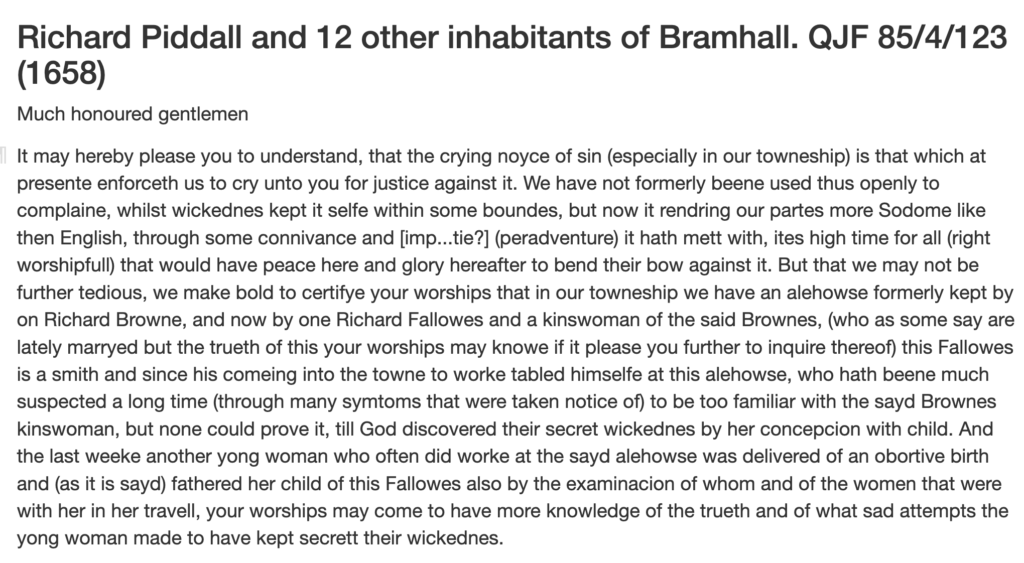
‘Much honoured gentlemen, It may hereby please you to understand …’
Users of BHO – which receives millions of visitors every year – will be able to search seamlessly the whole corpus of petitions alongside the hundreds of other volumes of historical material already on the site. British History Online has now been running successfully for 15 years and it has a detailed sustainability plan, which means that – unlike so many new digital resources – the long-term availability of the petitions is assured. Moreover, the project is working with the IHR Digital team to develop a more sophisticated search facility that will allow users to explore and filter the petitions by year, locality, sender (i.e. name, gender, occupation, etc.), recipient, topic and response as well as by keyword.
Putting all of these primary sources on British History Online will enable a much wider range of people to use them than would be possible were they simply published in a scholarly print edition. We hope that other historians will be able to pursue their own research questions by drawing on these transcriptions, and that instructors will use the collected petitions to teach their students about many different aspects of early modern England.
By making the collection freely accessible – rather than restricting it to subscribers – these sources can also be used by local historians, family historians and any other members of the public with an interest in this period.
Although there’s still much work to be done before all of the thousands of petitions are fully transcribed, edited and published online, these first two sets provide an opportunity to explore life in Elizabethan and Stuart England from an unconventional perspective.

Dr Brodie Waddell is Senior Lecturer in Early Modern History at Birkbeck, University of London. He is the Principal Investigator on ‘The Power of Petitioning in Seventeenth-Century England’ (2019-20), with Professor Jason Peacey of UCL (Co-I) and Dr Sharon Howard of Birkbeck (Postdoctoral Research Associate). This project is funded by an AHRC Research Grant, AH/S0001654/1.
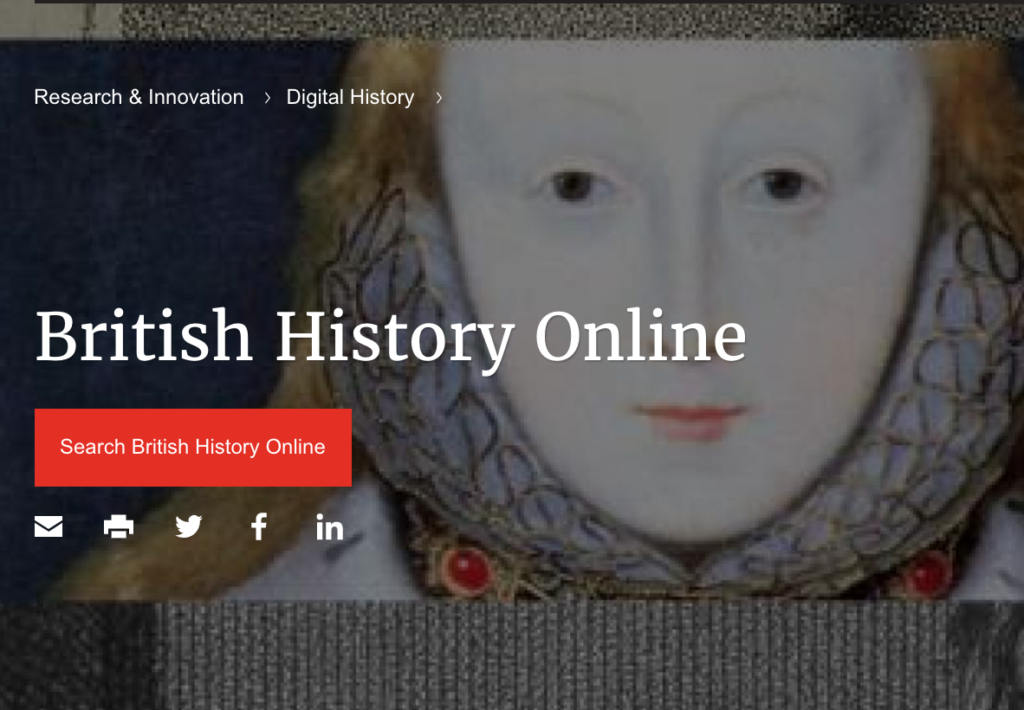
British History Online is the IHR’s free digital library of 1300 volumes of primary and secondary content, plus 10,000 maps, relating to the history of Britain and its empire in the period 1200-1900.
Full details of the first two sets of Cheshire and Worcestershire petitions on BHO are available here.
The next set of petitions will be added to BHO in October: this will cover c.350 records for Derbyshire and Staffordshire, including some 18th-century content.

